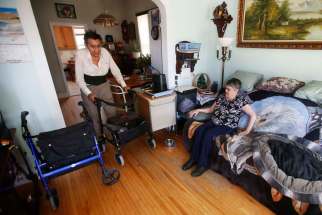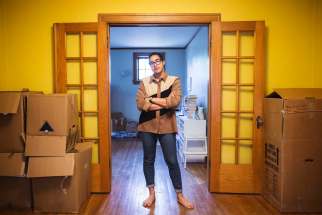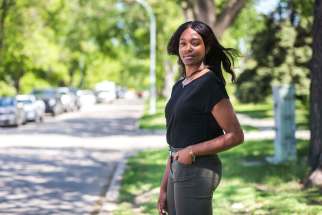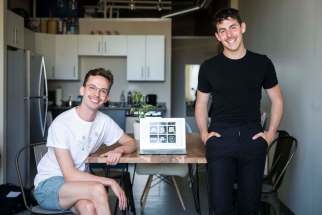Upcoming anti-racism protest shines light on Winnipeg experience
Read this article for free:
or
Already have an account? Log in here »
To continue reading, please subscribe:
Monthly Digital Subscription
$0 for the first 4 weeks*
- Enjoy unlimited reading on winnipegfreepress.com
- Read the E-Edition, our digital replica newspaper
- Access News Break, our award-winning app
- Play interactive puzzles
*No charge for 4 weeks then price increases to the regular rate of $19.00 plus GST every four weeks. Offer available to new and qualified returning subscribers only. Cancel any time.
Monthly Digital Subscription
$4.75/week*
- Enjoy unlimited reading on winnipegfreepress.com
- Read the E-Edition, our digital replica newspaper
- Access News Break, our award-winning app
- Play interactive puzzles
*Billed as $19 plus GST every four weeks. Cancel any time.
To continue reading, please subscribe:
Add Free Press access to your Brandon Sun subscription for only an additional
$1 for the first 4 weeks*
*Your next subscription payment will increase by $1.00 and you will be charged $16.99 plus GST for four weeks. After four weeks, your payment will increase to $23.99 plus GST every four weeks.
Read unlimited articles for free today:
or
Already have an account? Log in here »
Hey there, time traveller!
This article was published 02/06/2020 (2019 days ago), so information in it may no longer be current.
As the city prepares for a rally in solidarity with demonstrators across North America, many black Winnipeggers are reflecting on their own experiences with racism and injustice.
A peaceful rally has been scheduled for Friday at the Manitoba Legislative Building, following in the footsteps of hundreds of thousands of Americans and Canadians protesting the death of George Floyd, 46.
Floyd died May 25, after a Minneapolis police officer kneeled on his neck during an arrest.
Winnipeg police have been accused of anti-black racism in the past: most recently last year, after an officer shot and killed Machuar Madut, a South Sudanese father of three, struggling with mental health issues. In January, Manitoba’s police watchdog decided no charges should be laid against the officer.
Kwene Appah, student
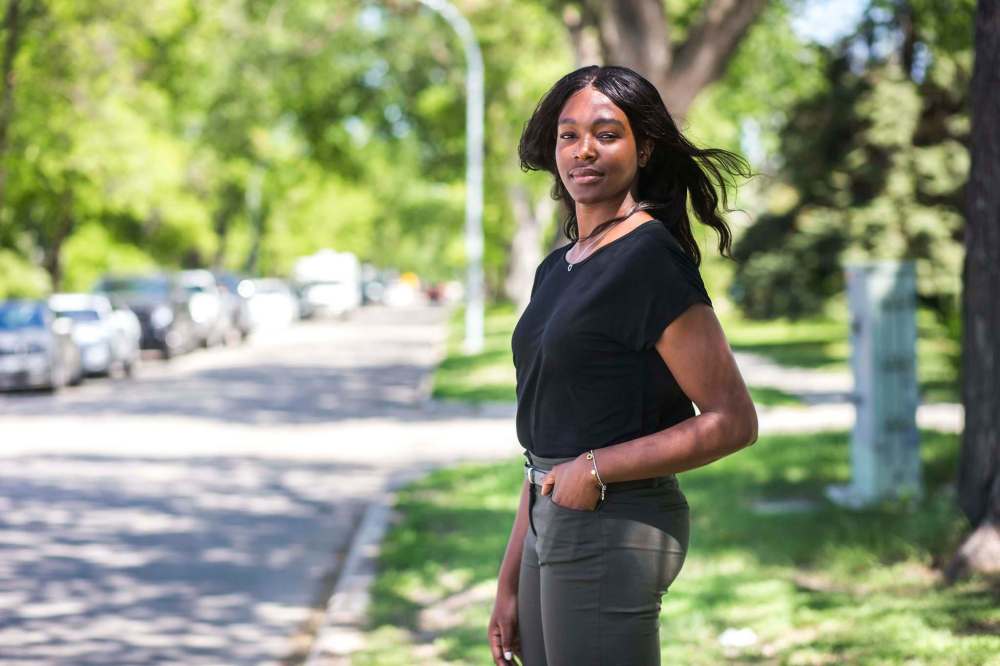
Appah has lived in Winnipeg for 15 years. It has been a “tricky lived experience to navigate” when facing racism.
“As I think most visible minorities do; it’s usually in the form of racial slurs being hurled at me, unprovoked,” she said Tuesday.
Microaggressions (more subtle forms of prejudice, often presented through day-to-day interactions) are something Appah said she has had to deal with, as well.
“If I critique something, I’m an angry black woman, or I’m too aggressive, critiques that wouldn’t be given to everyone unanimously,” she said.
“So it’s hard to navigate both the very aggressive physical forms of racism that everyone can verifiably say is bad… but then when you’re trying to make a case for the more subtle ones that exist in academia, or exist in personal life, or relationships, or friendships, it’s harder to make a case for that.”
“So it’s hard to navigate both the very aggressive physical forms of racism that everyone can verifiably say is bad… but then when you’re trying to make a case for the more subtle ones that exist in academia, or exist in personal life, or relationships, or friendships, it’s harder to make a case for that.” – Kwene Appah
Appah said her time as a sociology grad student at the University of Manitoba is “set in settler-colonialism,” and the education is very focused on white, male theorists.
“Winnipeg does a great job about showcasing and acknowledging its diversity, but there are places like academic institutions or schools where it’s not given the same type of platform… There’s a lot of discussion around diversity, but there’s no actual change towards inclusion,” she said.
She said she has had her fair share of neutral instances with Winnipeg police, and “one or two” instances of negative ones, but emphasized they often strike the same level of fear regardless.
“They’ve all caused me to feel the same: whenever I do get pulled over, or whenever a police officer does stop to talk to me, my anxiety goes up,” she said. “I’m automatically anxious, I worry about where my phone is, I worry if it’s charged, I worry if I told someone where I was this exact moment.”
Appah feels she “has to perform harder” when interacting with police than her white-passing colleagues would, even when following the law.
“It’s difficult. It’s hard on your heart, it’s hard on your conscience to always feel that way.”
Nuun Ahmed, truck driver
Said Harir Omar, construction worker
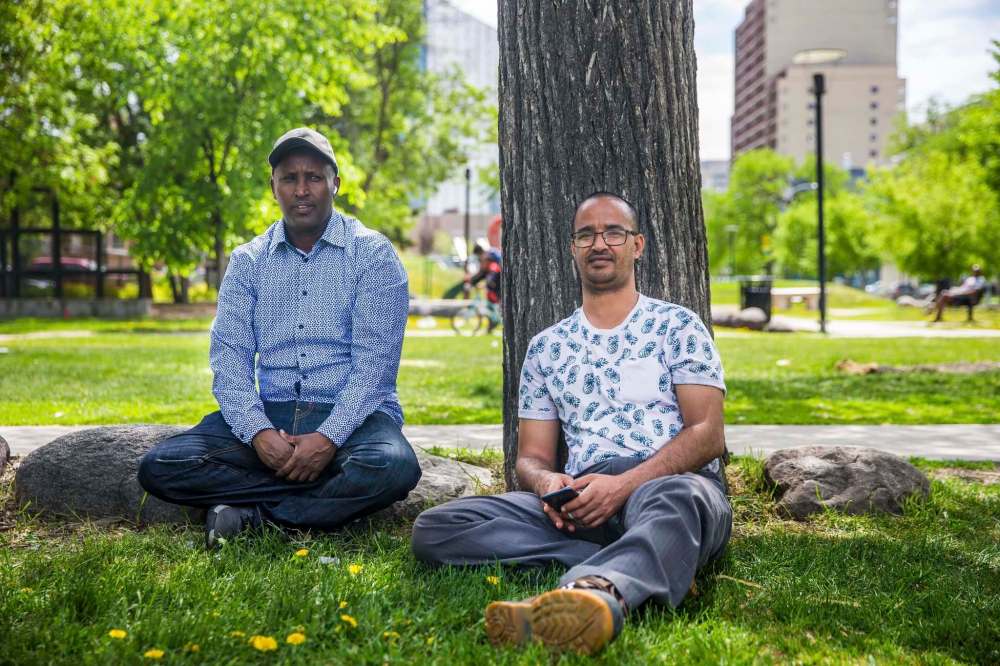
At downtown Central Park, Nuun Ahmed and Said Harir Omar are getting some sun. Both are new to the city — Omar arrived in September 2019, and Ahmed in October 2019 — and both are originally from Somalia.
“This is a good place. We don’t get any problems,” Ahmed said.
Despite this, Omar said a recent issue with hiring had given him some concern. He’s a construction worker, and said he’s had some trouble finding work. During an interview, he said he was cut off and “shooed” away, but suggested it could be a language barrier concern.
Ahmed, a truck driver, said despite doing well on a recent driving test, he was recently turned away from a job as well, and suggested race may have been a factor.
“Maybe that was part of (my) colour, I think,” he said.
Both are concerned for their family in the wake of protests in America: Ahmed has family in Texas; Omar has a brother in Minnesota. The men said they’ve felt welcomed by Winnipeg, and have not had any negative interactions with police.
“Winnipeg people, they’re good people,” Ahmed said. “They’re already mixed, a lot of black people are here, so everybody’s good friends.”
Leah Aidiu, customer service worker
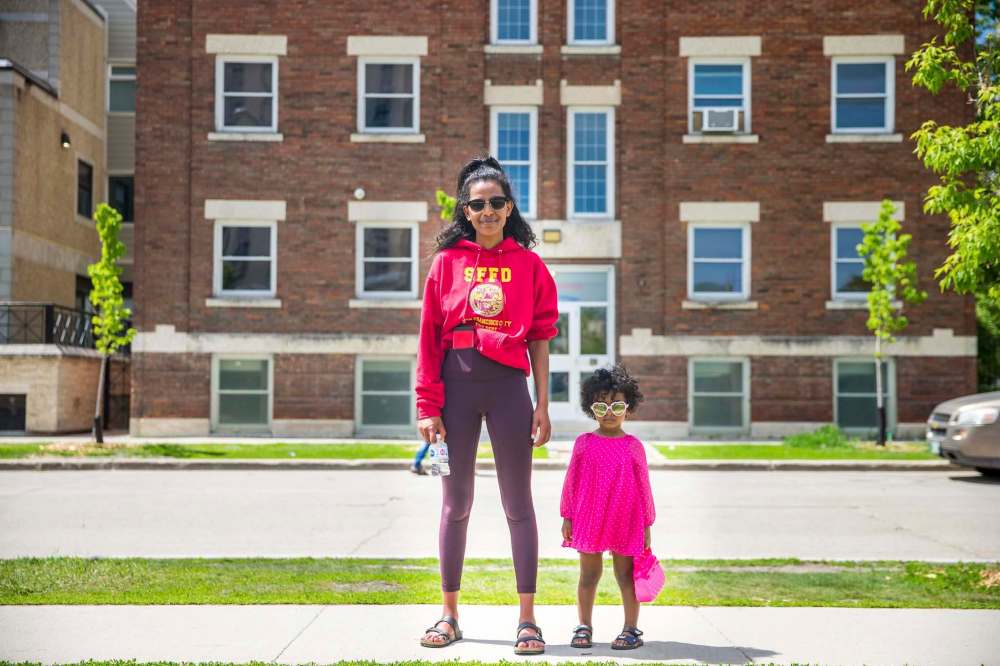
Leah Aidiu has been a Winnipeg resident for four years. Originally from Ethiopia, she has had similar troubles finding work in the city, noting it took her months to find a job.
“My other Canadian friends, it didn’t take them maybe a month, or weeks to find a job, even though I had more experience in customer service,” she said, suggesting race could be a factor.
“People have this idea — that black people don’t have much experience, or they don’t speak the language,” she said. “But they don’t even know that I speak more than five languages… they don’t give you a spot to learn or to have an experience.”
Aidiu said she hasn’t interacted with city police often, but has heard concerns of unfair treatment from other people in her life.
“To be honest, I don’t hear much stories… but I hear people complaining about it.”
Sened, high school student
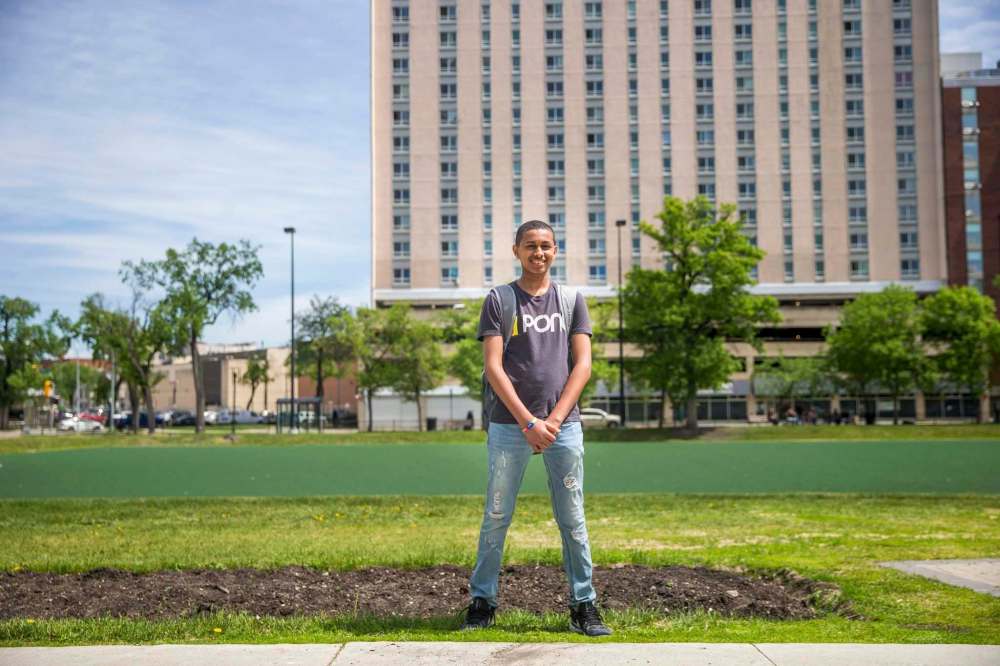
Sened is 15, in Grade 9, and wants to be an astronaut when he grows up. He’s a recent immigrant from Ethiopia, and has been in Winnipeg for 2 1/2 years.
He’s well-aware of the current unrest between police and protesters across North America, but believes Canada — and Winnipeg — is a safer place to live.
“Actually, in Canada, there’s a freedom, and I really like it,” he said. “I would rather live in Canada than America.”
He said his personal experiences with police have been positive, including a time where an officer walked him home late at night through downtown.
“It’s equal, black and white,” he said. “I’ve never felt like this before, when I came here, I really enjoy it.”
malak.abas@freepress.mb.ca
Twitter: malakabas_

Our newsroom depends on a growing audience of readers to power our journalism. If you are not a paid reader, please consider becoming a subscriber.
Our newsroom depends on its audience of readers to power our journalism. Thank you for your support.













